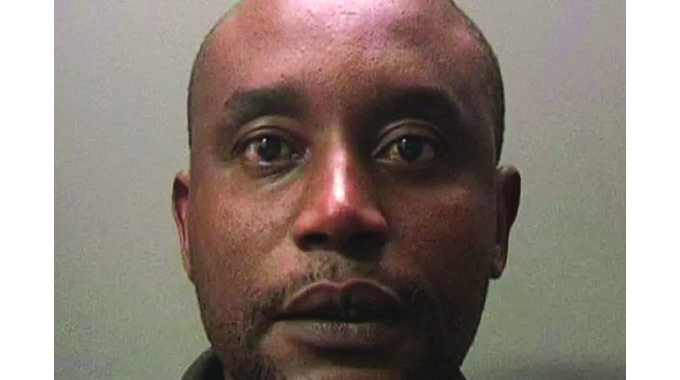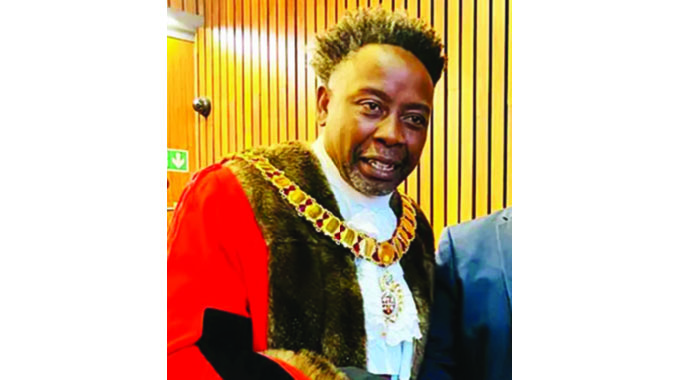Mercenary attitude rife at private hospitals

Dr Masimba Mavaza
Most medical and health workers in Zimbabwe’s private hospitals or clinics have sold their hearts to the devil.
They have clearly shown their love for money and have not put their patients first. If ever there is an area the devil mastered and succeeded is in private hospitals.
Most private hospitals accept critical patients but refuse to start treatment until they are paid in full. Even where the doctors are fully aware that time is critical in saving that life, they will not do anything until they are paid.
When patients are unable to afford medical services, those services can be denied by a medical professional. In fact, this is one of the most common reasons why doctors exercise their limited right to refuse treatment.
A doctor’s right to refuse care is limited in several ways. Doctors can also exercise discretion and choose not to treat patients who require treatment that falls beyond the doctor’s scope of practice.
Pertinent to this topic, however, medical professionals and institutions can’t refuse to treat a patient when their refusal would cause harm – even if the patient can’t pay.
This is perhaps best demonstrated in the emergency room, where patients in need of immediate medical attention often receive it regardless of their ability to pay.
For example, a patient who suffers a severe laceration can’t be refused medical treatment. Refusal could mean allowing the patient to bleed to death or suffer from an infection that could lead to death.
This seems to be an extreme example but it underlines a salient point: When a doctor’s refusal to treat a patient would allow greater harm to occur, they must treat the patient. This should be an enforced rule.
Mrs Marufu visited Zimbabwe from her home in the United Kingdom. While she was in Zimbabwe, she went to Victoria Falls. Unfortunately, she was involved in a serious car accident and was ferried to a private hospital in Bulawayo. The doctors told her relatives that they would need $5 000 to treat her. They were assured by the relatives that they will put the funds together in few hours.
The doctors told the relatives that treatment will not be done until the full amount was paid. This was despite the fact that they were already given half of the payment.
The doctors were fully aware that Mrs Marufu’s life was in danger.
The relatives ran around and after three hours they raised the required amount.
As soon as the money was paid, Mrs Marufu was wheeled into the theatre room.
After 20 minutes the doctor came back with the news the family feared the most.
Mrs Marufu had died since she had lost a lot of blood while waiting for treatment.
The doctor’s new that she needed a quick treatment but they loved money more than her life. The difference between life and death for Mrs Marufu was US$5 000.
The most evil thing was that the doctors took the money even though they knew she was not going to make it. There was no refund as the family had fallen victim to blood-sucking medical mercenaries.
In resource-poor countries or those where medical expenses are privately funded, there exists a tendency among doctors to delay crucial medical intervention due to the requirement for upfront payment.
Regrettably, within the healthcare landscape of Zimbabwe, certain institutions and healthcare professionals seem to prioritize financial gains over life and patient welfare.
The question is why did one become a medical doctor?
But most importantly, a career in medicine is supposed to empower one to help people, to be respected by others and to get job satisfaction in a way that is impossible to feel in many other careers.
Caring for patients as people really is at the heart of medicine, and it’s a great privilege to be able to help people when they’re at their most vulnerable. The ethos of medicine should appeal to these doctors. Medicine is supposed to be an altruistic career where integrity is important.
But alas, integrity for those at private hospitals has been overtaken by greed and love for money. Many medical students have always had a genuine interest in health, so they knew they would find medicine intellectually rewarding.
Medical doctors are supposed to be people persons so they did medicine knowing very well that they would enjoy working as part of a team to treat patients.
Before the love of money took over, practising as a doctor was an honour, but surely the love of money is the greatest evil.
Doctors are trained to identify life-threatening health conditions. They understand the critical nature of timely medical intervention. The risks associated with delays in delivering medical care are known to medical professionals.
But Zimbabwean private hospitals emphasise prompt payment and not prompt treatment.
For instance, in the case of stroke patients, early and timely intervention is crucial. If individuals reach the hospital within 3 hours of experiencing the first symptoms of an ischemic stroke, they may receive a thrombolytic, a “clot-busting” drug like tissue plasminogen activator (TPA). Administering TPA within this time frame enhances the chances of breaking up blood clots and improving stroke recovery. But waiting for money to be put together exposes the patient into fatal risk.
For the sake of life we should have universal healthcare paid for by taxpayers, because medical care is comparable to public services like the fire department or the police, something everyone needs and should receive equal treatment. Money should never be a requirement for medical care.
If medicine is now highly commercialised, doctors will need to see more paying clients per hour, keeping that pace and adhering to the standard of care demanded of a doctor will not be achieved.
Australia uses a co-payment system where the government pitches in with a Medicare rebate and the patients pay a top up.
The doctors must simply work pro bono, because we believe in health and want people to live longer. It’s a beautiful thought, but falls short on a few key points: doctors are human beings, who might have children to feed, mortgages and student loans to pay and who knows, maybe even want a standard of living that compensates for their long hours and hard work.
It’s also worth keeping in mind that providing medical care is expensive to the provider; but the sanctity of life is not negotiable. So there should be money coming in from somewhere for there to be doctors.
Waiting for payment before treatment is satanic. Recognizing the signs of medical emergencies is imperative.
A dear brother was woken up one morning to be told that his son had been involved in a car accident and was in hospital. The private hospital wanted US$10 000 before treatment started. It was early in the morning and banks were closed.
By the time businesses opened, the young man was barely breathing.
He was rushed to a treatment room where he died after 10 minutes.
The money was not refunded. The doctor clearly knew that the critical moments were wasted waiting for payment but he still took the money.
These private hospitals are practising consumer medicine and giving people false hope.
The most disheartening thing is that even if doctors know that the patient won’t make it, the still demand full payment.
Even if they know and see signs of a heart attack such as chest pain, pressure, heaviness, tightness, or squeezing, they still ignore you until you pay.
Similarly, signs of a stroke, such as face drooping on one side, inability to hold both arms up, and difficulty speaking, require urgent medical intervention.
Identifying life-threatening conditions, including suicide attempts, severe difficulty breathing, choking, heavy bleeding, seizures, sudden rapid swelling, and sudden confusion, is crucial for prompt intervention but money has been out forward as the life saving tool.
Private hospitals must emphasise the importance of early medical intervention in emergency health conditions and this cannot be overstated. Doctors’ training and knowledge enables them to make critical distinctions, understand the risks of delays, and appreciate the utility of timely interventions, ultimately saving lives. But they ignore all this training and concentrate on payment, becoming medical terrorists.
If you were refused necessary medical treatment and became severely injured as a result of the refusal, you may be able to recover damages from the medical professional or institution responsible denying treatment.








Comments